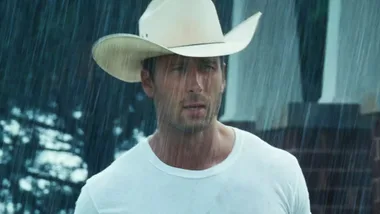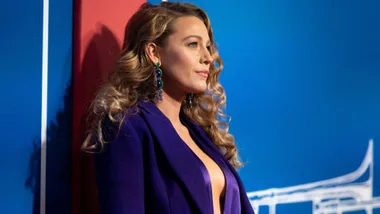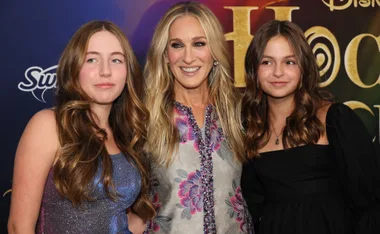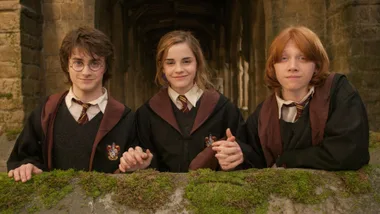CONTENT WARNING: marie claire advises that this story contains mentions and photos of Aboriginal people who have passed away.
Anzac Sullivan was loved. A Bakindji man, brother, son, nephew and uncle, he was 37 years old.
Anzac Sullivan died last week during a police pursuit in Broken Hill on the 18th of March.
Anzac Sullivan is the fourth Aboriginal death in custody in three weeks. Two weeks ago, a man in his 30s and a woman in her 50s died in prison custody in New South Wales. Last Sunday, an Aboriginal man died in Victoria’s Ravenhall correctional centre.
Four lives. Three weeks.
And yet, where is the national outrage?
in the past weeks, the country has been practically consumed by discourse surrounding the alleged sexual assault and harassment taking place within the walls of parliament. You can’t read the paper, turn on the paper or scroll social media without reading about ministers accused of rape, ministers calling women alleging rape “lying cows”, or ministerial staff accused of taking photos of themselves masturbating on office desks – to name literally only three scandals out of too many to count. Comparatively little attention has been paid to the state infrastructure that commits racist acts of violence every week.
In April, it will be 30 years since the royal commission into Aboriginal deaths in custody handed down 339 recommendations.
In that time, there have been more than 440 Aboriginal deaths in custody.
In 2020, on average there were more than 12,000 Indigenous people in Australian prisons every night.
A recent study by the NSW Bureau of Crime Statistics and Research (BOCSAR) found that Aboriginal defendants were 20.4% more likely to be refused bail by police than non-Aboriginal defendants in similar cases.
In Victoria, Aboriginal people are imprisoned at rates 12 times higher than non-Aboriginal people.
On average, the life expectancy of Aboriginal people in Australia is ten years shorter than non-Aboriginal people.
Where are the calls for Scott Morrison to answer for the violence, repression and deprivation that results in statistics like these?
In addition to the four deaths in the past three weeks, this week the Northern Territory Government announced its plans to introduce new amendments to the Northern Territory Youth Justice Act which should prompt serious concern about the way our state targets Indigenous youth. The proposed changes include the introduction of breath testing on children, $5 million funding to build youth detention centres, the expansion of the Bail Act which would broaden the list of crimes to make it more difficult for children to be granted bail, and changes that will restrict the ability of judges to put children on diversion programs instead of sending them to prison.
It’s insane that this even needs stating: Children do not belong in gaol.
In fact, research indicates that rates of reoffending drop dramatically for kids put into diversion programs, but the chance of reoffending increases the younger a child has their first contact with the criminal legal system. Reminder: The current age of criminal responsibility in the Northern Territory is 10 years old, four years below the UN recommended age of 14.
History tells us that these harsh, punitive measures do nothing but increase the power of the police to target children and the likelihood of them being put into prison.
Where is the national outrage?
Some might argue that Australia has failed to meet the global movement to defund the police because of the fact that the police are invariably bound up with our very inception. The police were introduced as a tool of colonial repression to target Aboriginal and Torres Strait Islander people from our establishment as a colony. The police were fighting in the Frontier Wars and existed as a militarised, armed force long before even Britain or America established organised police units.
If we want to talk about violence – violence against women included – we need to start acknowledging the root cause of it in our country and that begins with demanding answers from the police and the politicians that empower them. The deaths of the man and woman in NSW two weeks ago were only revealed under questioning during a state parliamentary hearing. What else are they not telling us?
These deaths, the government efforts that are further endangering children and the state’s insistence on strengthening police power should have us in the streets with as much, if not more, gusto than we saw when thousands took part in the March for Justice.
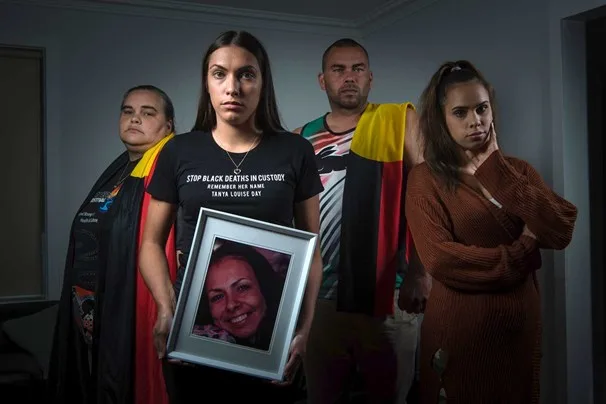
Sexual assault and harassment is unacceptable and the Morrison government’s response to the consistent stream of allegations of it occurring in parliament has been nothing short of unconscionable. But it’s imperative we not lose sight of the role the state plays in the pervasive, racist violence occurring every week.
You can care about more than one issue but the fact is that these issues don’t get the same amount of attention and that’s a symptom of white supremacy functioning pretty well in Australia.
Some actionable steps to take:
- Sign the statement condemning the NT’s youth penal policy
- Follow and support the work of organisations working directly with communities such as the Dhadjowa Foundation which was founded by Apryl Day to provide support for Aboriginal and Torres Strait Islander families whose loved ones have died in custody
- Attend a rally on the National Day of Action, April 10, to demand justice and self-determination for Aboriginal and Torres Strait Islander people
See you on the streets.

